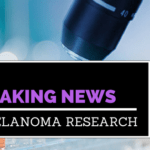RP1 + Nivolumab Rejection: Advocating for Patients and Trust in Clinical Trials

FDA Rejects Promising Melanoma Treatment
On July 22, 2025, the Food and Drug Administration (FDA) rejected the approval of a treatment for advanced melanoma that had shown promise in clinical trials. RP1 (vusolimogene oderparepvec) is an oncolytic immunotherapy given in combination with nivolumab (Opdivo). RP1 + nivolumab would have been a second-line treatment for patients with advanced melanoma that did not respond (or did not durably respond) to prior immunotherapy.
RP1 + nivolumab had been studied in phase 1 and 2 clinical trials beginning in 2018 and had shown clear clinically meaningful activity in all patient sub-groups. In late 2024, the FDA had given it “breakthrough therapy” designation, accepted the Biologics License Application (BLA), and granted priority review. For these reasons, researchers, medical providers, and patients were expecting an approval in July, but instead the application was rejected. Rejection comes in the form of a Complete Response Letter (CRL) to the sponsoring company, and in this letter the FDA noted that the reasons for the rejection were parameters that were previously agreed-upon: one, that there was not a second “arm” in the trial; and two, that the trial enrollment was heterogeneous. The rejection cited no safety concerns.
A Treatment That Addresses an Unmet Need
For AIM, an organization whose mission is to advocate for patients, this rejection did not sit well. There is a large unmet need for another second-line treatment for advanced melanoma, as there is only one currently FDA-approved. Many patients whose melanoma treatment(s) have failed were waiting for RP1 to be approved; still others are currently undergoing first-line treatment and know their options are limited if their treatment fails.
Impact on Clinical Trial Participants
Perhaps more importantly, a denial based on previously agreed-upon study parameters is a breach of trust for all of us—patients, families, and researchers—particularly for those who participate in clinical trials. Patients put themselves out to join trials: They often travel long distances, make financial sacrifices, and put their own health at risk by participating. Their caregivers make similar sacrifices. They are aware that the treatment in their trial may not benefit them, but they participate hoping to advance research and help others who are suffering or may suffer. In return for their participation, they count on the approval of a treatment that is deemed safe and effective. Patients in all diseases will be less likely to participate in trials if the rules are changed in the 11th hour. Decisions like this one make patients feel like their participation was meaningless.
Why AIM Is Speaking Up
AIM does not usually get involved in these types of decisions and respects the FDA’s authority and expertise in determining the safety and effectiveness of any new treatment. This case is different, so we feel compelled to speak up.
Our first act was to gather support from our community, and you may be familiar with our emails and social media posts asking you to share your melanoma stories and your feelings about the denial with the FDA. We then invited other nonprofits to participate. Melanoma Research Alliance (MRA), Melanoma Research Foundation (MRF), and other foundations have sent our link to their communities, asking for more stories. We have written a letter to the FDA, asking to allow patients access to this treatment while it meets with the sponsor to find a pathway forward; it will be signed by multiple foundations and will include all the stories you sent us. This letter will be sent to the FDA in the near future.
Mobilizing the Community
Samantha Guild, AIM’s president, has been meeting with congressional offices of representatives that have some oversight of the FDA. If you’ve granted permission, she is sharing your stories with your senators’/representatives’ offices and asking their support to regain trust in the clinical trial process.
Engaging Lawmakers and Public Awareness
Additionally, we are trying to elevate this denial to the public. We will continue to post on social media and address it in wider cancer nonprofit—beyond melanoma—conversations. Furthermore, we will submit op-eds to national newspapers that we hope will be published.
Collaborating with the Medical Community
Finally, we are working with the medical community to amplify our shared messages of disappointment and to appeal to the FDA. Many of you noted that your oncologist directed you to our website to share your story.
Share Your Story
We will keep you apprised of any news regarding RP1 + nivolumab. In the meantime, if you would like to share your story or send a message to the FDA, please click the link below.
Note: Glossary terms are automatically highlighted and may not always reflect the exact context of the article.
Recent Posts

Moderna, Merck’s Skin Cancer Vaccine Shows Sustained Benefit in Five-Year Follow-Up

Reflecting on Melanoma Treatment in 2025 and Looking to the Future in 2026

The Integrative Care Approach

Improved Response to Immunotherapy with COVID-19 mRNA Vaccines


